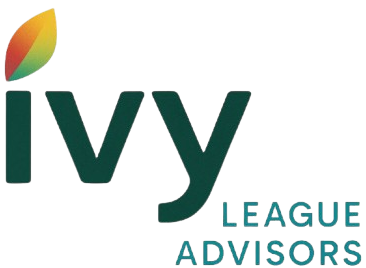Blog
Home / Blog

How to Prepare for College Interviews with Confidence
- Neil Brown, Founder of My Ivy Advisor
- September 9, 2025
College interviews can feel intimidating, especially when applying to Ivy League and top-tier universities. While not every school requires them, when offered, interviews are a golden opportunity to show admissions officers who you are beyond your grades and test scores.
The good news? With the right preparation, you can walk into your interview feeling calm, confident, and ready to impress. At My Ivy Advisor, we’ve helped countless students turn interviews into strong assets for their applications. Here’s how you can do the same.
1. Understand the Purpose of the Interview
Many students think the interview is about testing knowledge — it’s not. College interviews are designed to:
Learn about your personality, interests, and goals.
See how you might contribute to the campus community.
Give you a chance to ask meaningful questions.
Think of it as a conversation, not an interrogation. The interviewer wants to get to know you.
2. Research the College Thoroughly
One of the most common mistakes students make is walking into an interview without knowing enough about the school. Before your meeting:
Review the college’s mission, values, and academic programs.
Look up extracurricular opportunities that align with your interests.
Read recent campus news or initiatives.
Being informed shows genuine interest. Instead of saying, “I like the campus,” you could say, “I’m excited about the undergraduate research opportunities in environmental science at your new sustainability center.”
3. Practice Common Interview Questions
While every interview is unique, certain questions come up often. Practice answering:
Tell me about yourself.
Why do you want to attend this college?
What are your academic interests?
What do you do outside of school?
Tell me about a challenge you’ve overcome.
Where do you see yourself in five years?
Your answers should be clear, authentic, and concise. Avoid memorizing scripts — instead, prepare bullet points so you sound natural.
4. Prepare Stories That Highlight Your Strengths
Admissions officers want more than one-word answers. Prepare short stories that illustrate your qualities, passions, and growth. For example:
If asked about leadership, describe a time you led a project, team, or club.
If asked about challenges, explain how you overcame obstacles and what you learned.
Stories make you memorable because they show, rather than tell, your strengths.
5. Practice Your Delivery
Confidence isn’t just about what you say, but how you say it. Focus on:
Eye contact: Shows engagement and confidence.
Posture: Sit upright to convey professionalism.
Tone: Speak clearly and avoid rushing.
Pauses: Take a moment to think instead of filling silence with “um” or “like.”
Mock interviews can help. At My Ivy Advisor, we run practice sessions so students feel comfortable and confident before the real thing.
6. Prepare Smart Questions to Ask
An interview isn’t just about answering questions — it’s also about asking them. Prepare thoughtful questions like:
“How would you describe the student community here?”
“What unique opportunities does this college provide for undergraduates?”
“What’s one thing you wish more applicants knew about this school?”
Avoid basic questions you could answer with a quick Google search. Smart questions show curiosity and genuine interest.
7. Dress and Present Professionally
First impressions matter. You don’t need a suit and tie, but choose clean, neat, and appropriate clothing. Business casual works well. Your outfit should not distract from your personality and conversation.
8. Manage Nerves Before the Interview
Feeling nervous is normal. A few strategies to calm yourself include:
Take deep breaths before you begin.
Remind yourself the interviewer is not there to judge, but to learn about you.
Arrive (or log in) early to avoid last-minute stress.
Focus on having a conversation, not giving “perfect” answers.
9. Follow Up After the Interview
Within 24 hours, send a short thank-you email. Keep it simple:
Thank the interviewer for their time.
Mention one part of the conversation you enjoyed.
Reaffirm your enthusiasm for the college.
This small gesture shows professionalism and leaves a positive final impression.
10. Learn from the Experience
Whether the interview goes perfectly or you stumble a little, every experience is valuable. Reflect afterward:
Which answers felt strong?
Where did you feel less confident?
What can you improve for future interviews?
The more you practice and reflect, the stronger you’ll become.
Final Thoughts
A college interview is not about being perfect — it’s about being authentic, prepared, and confident. By researching the school, practicing your answers, and presenting yourself with poise, you can turn your interview into a powerful part of your application.
At My Ivy Advisor, we help students master interviews through one-on-one coaching, mock sessions, and feedback that builds confidence. With the right preparation, you won’t just survive your interview — you’ll shine.
